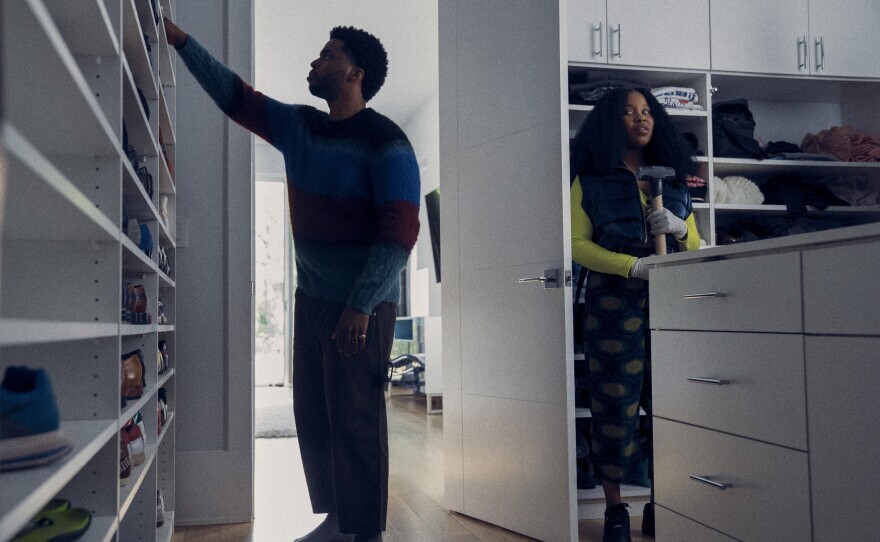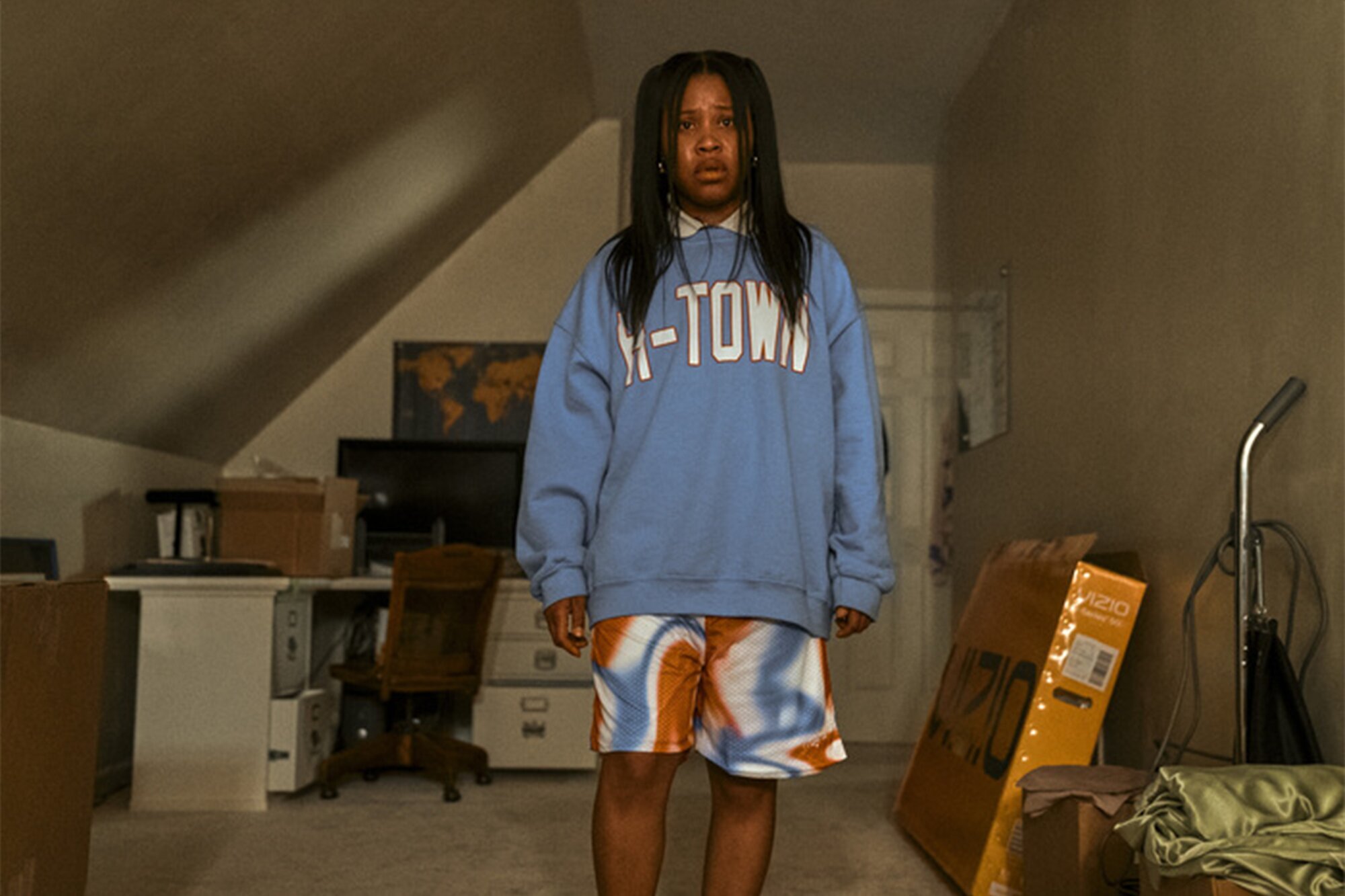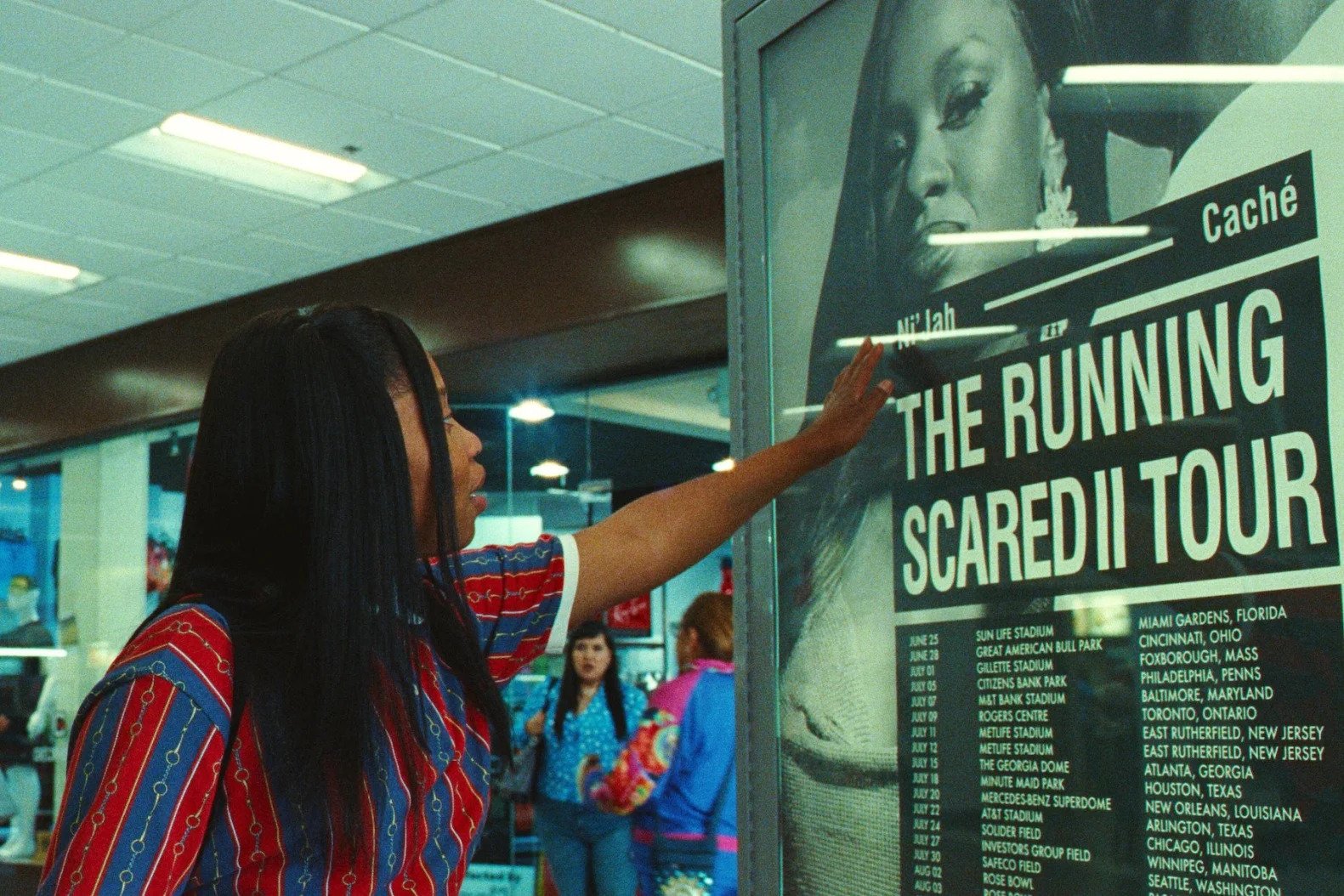Watercooler Wednesdays: Swarm
Watercooler Shows, the trending series that everyone talks about the next day at the office, around the water cooler. Watercooler Wednesdays seeks to be a (critical) guide through the VoD maze: from masterpiece series to guilty pleasures, and from blockbusters that keep you on the edge of your couch to hidden gems; if it leads to binging, then it’s exactly what we’re looking for.
Swarm (Donald Glover, Janine Nabers, 2023)
Truth be told, Swarm was not my first choice for the March edition of Watercooler Wednesdays.
After going with a zombie horror last month, I thought it was time for a lighter recommendation, still an apocalypse, but with a comic twist: Class of ’07. The premise is a very promising one: an inexplicable flood sweeps the Australian coast and the only survivors are the graduates of a Catholic girls’ high school in Sydney, who have come for their 10-year reunion. The result is something at the intersection of Mean Girls, Lord of the Flies and Animal House, only completely humourless. The thing is that if you put the jokes on paper the humour should work; in like manner, when it comes to teenage drama and trauma, the acting is solid, but it’s impossible to care too much about any of these characters. Somewhere between the absurd humour and the unlikely trajectory of the characters, there just seems to be a lack of effort in making this series move as a whole.

Trying to figure out what I’m missing – Class of ’07 isn’t a bad or poorly made film, it’s just a useless cinematic experience, but clearly made by talented people – I found only rave reviews and positive feedback from the public, with one fan mentioning that it’s better than Swarm (that is only because both were released on Amazon Prime on the same day, otherwise they explore totally different themes and visions). At the time of coming across this little coincidence, I had already started watching Swarm, a series that tackles the very topic of fan culture. I realised how often I’ve used this word (fan) in my reviews, and how little nuanced the opinions on TV series that flood the Internet are (compared to the debate around cinema). The world of TV shows is divided into fans and haters – in the light of this failed experience with Class of ’07 (the March recommendation that wasn’t meant to be), Swarm gains even more relevance: for what are haters after all, if not critics?
And in Swarm, the critics pay the price.

“What’s your favourite artist?” is the trick question that Dre asks her future victims. But really, most of those who answer (wrong, obviously) have sealed their fate the moment they posted something negative about Ni’Jah, the pop star the protagonist idolises. And it seems that the protagonist is a serial killer with a preference for massive blunt objects that generate a lot of splatter, an addiction to junk food (bags of leftover chips at the crime scene are kind of her signature), repressed sexuality and a traumatic childhood.
To be clear, Dre is not an anti-heroine, her victims don’t deserve their demise (à la Dexter), nor is a morally repugnant character inspired by some true crime (à la Dahmer). And trauma is neither the explanation nor the excuse for her actions. She is not a pitiful or irredeemable victim of the cards she’s been dealt, her past serves to round out the story, to punctuate the (psychological) accumulations and (comic) coincidences, which lead in unexpected ways to a new victim or a new chance to save herself.
If empathy is possible here, and without going along the beaten paths explained above, the credit obviously goes to the lead actress. Dominique Fishback does an absolutely amazing job, she manages to play so many (and so) different facets of Dre, but somehow always maintains a common thread (dangerously invisible at times) that assures us we’re not dealing with some lazy script manoeuvre such as multiple personalities. Like the fake star her character is obsessed with, Fishback is constantly reinventing herself.

For the lead actress, Swarm could very well be a demo reel. However, the general concept of the series seems to be that of a mix tape: each episode stands out in its own way, there is a stylistic coherence, but also a lot of creative freedom. The first episode – which sets the tone, and where the multi-talented Donald Glover (known for Atlanta and his musical persona, Childish Gambino) seems to be most involved – is also the best. The abrasive realism that pervades the beginning of the series (there would have been no surprise had the Safdie Brothers appeared in the end credits as the directors) firmly anchors the character in the American social and media landscape, so the satire stays the course and remains relevant as we delve deeper in that Afro-surrealism that Glover, among others, brought to the fore with Atlanta.
Playing with reality provides a generous umbrella for all sorts of creative endeavours and twists that work independently but complement each other, and which offer unexpected aesthetic rewards: Dre’s outfits, always impeccable (even though she’s always on the run and living in stolen cars), which you anxiously think will soon be stained with blood; the real music created for the fictitious artist Ni’jah; an entire episode packed as a true crime documentary, where we follow a detective investigating a series of mysterious murders, so well dosed that you can’t tell if it’s real and if Dre actually has a real correspondent (in this episode, Glover plays himself, announcing that his next show will be based on a true crime story).

Whether intended or not, Swarm – a show about the unhealthy obsession with celebrities – seems to prove its point through the very critical/journalistic discourse that falls into its trap: most reviews will mention right from the title that the character of Ni’jah is based on Beyonce and that Obama’s daughter co-wrote one of the episodes. In a plot twist that I personally credit as one of the (meta)comic peaks of the series, Dre listens perplexed as a white coworker from the strip club tells her that she’s actually black: “You’re black? / Yeah… my dad’s half”. The actress who delivers the line is Paris Jackson… the daughter of that Michael Jackson.
These kinds of moments where Swarm humorously ruminates on all sorts of racial, gender or class sensitivities are also where the social satire shines the most. More often than not, Dre moves forward in her bloody exploits with the help of “good” white progressives, who defend her against the ones appearing to be racist (a receptionist who refuses her entry to an exclusive club, a suspicious cop accused of harassing a woman of colour) – and the way they do it is obviously classist. Never does Dre appear more sane and in full command of social conventions (which she otherwise seems to have no understanding of) than in her interactions with the Caucasian characters, deftly bending to their own prejudices about other white people, under the same, though modern-day, white saviour complex.
Swarm is available on Amazon Prime.
Film critic and journalist, UNATC graduate. Andrei Sendrea wrote for LiterNet, Gândul, FILM and Film Menu, and worked as an editor on the "Ca-n Filme" TV Show. In his free time, he works on his collection of movie stills, which he organizes into idiosyncratic categories. At Films in Frame, he writes the Watercooler Wednesdays column - the monthly top of TV shows/series.


